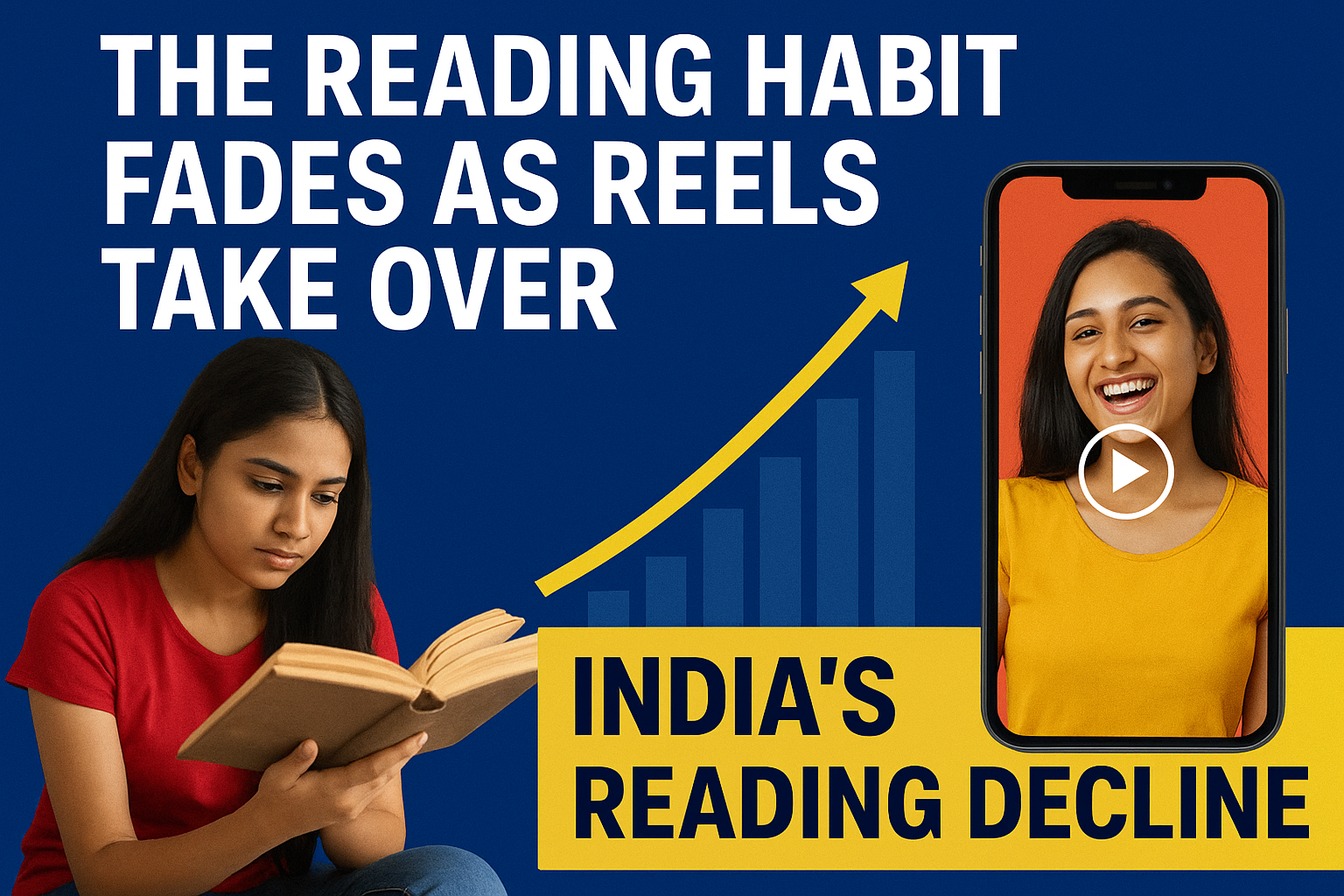
Across generations, books have shaped the way people learn, imagine, and think. But in recent years, reels and short videos have quietly taken over that space. What began as quick entertainment has now turned into hours of endless scrolling every day. For students and young people, this shift is reducing the time spent on reading and deep learning. While India struggles with this change, countries like Australia and New Zealand are already planning strong steps to deal with the same problem.
The Rise of Reels in India
Surveys show how deeply reels have entered daily life. A 2023 study reported that the average Indian spends about 1.2 hours every day just on short videos. Another survey by Axis My India revealed that 80 percent of people watch reels or similar content daily. Among students, the numbers are even higher. A study found that some Gen Z users spend nearly three hours daily, watching up to 450 reels in one stretch.
This is not just about fun. It changes habits. Teachers often say students find it harder to finish long reading tasks or novels. Instead, they are drawn to quick and simple videos. It’s not surprising—reels are short, colorful, easy to follow, and come in many languages. With cheap data and smartphones, reels reach people everywhere, from big cities to small towns.
What Psychologists and Teachers Are Warning
Experts say watching too many reels can shorten attention spans. It makes it tough to focus on one subject for long. Students often complain of losing concentration during studies. Sleep problems are also linked with late-night scrolling. While some reels do promote books or share knowledge, the majority focus on entertainment, and that pulls time away from serious reading.
The Global Picture: How Other Countries Respond
India is not alone in facing this issue.
- Australia has already passed a law banning children under 16 from creating accounts on platforms like Instagram, TikTok, and YouTube. This law will come into effect in December 2025, and companies that fail to follow it can face fines up to AUD 50 million. About 77 percent of Australians supported this move, though some worry about privacy and enforcement.
- New Zealand is also moving in the same direction. Its government has said it is studying how to block social media use for those under 16. They plan to present options to Parliament soon, possibly before their 2026 elections.
These steps are attempts to reduce the hold of reels and short videos on teenagers.
What India Can Do
India may not need such strict laws, but it can learn from these debates. Instead of bans, small steps can help:
- Schools can set aside reading hours and hold reading competitions to bring back interest in books.
- Parents can fix family reading time, even 20 minutes daily, to make reading a habit.
- Publishers can use reels as teasers to attract attention, but guide students toward full books.
- Libraries and community groups can make reading social through clubs and local-language events.
Final Take
Reels are not going away. They have changed how people spend time and how they consume information. But if India wants its students to think deeply, books must continue to play a strong role. The answer is not to ban reels, but to balance them with habits that give space to reading. A reel may bring a moment of fun, but a book gives the joy of imagination, patience, and knowledge. The challenge now is to make sure young Indians do not lose that gift.





















